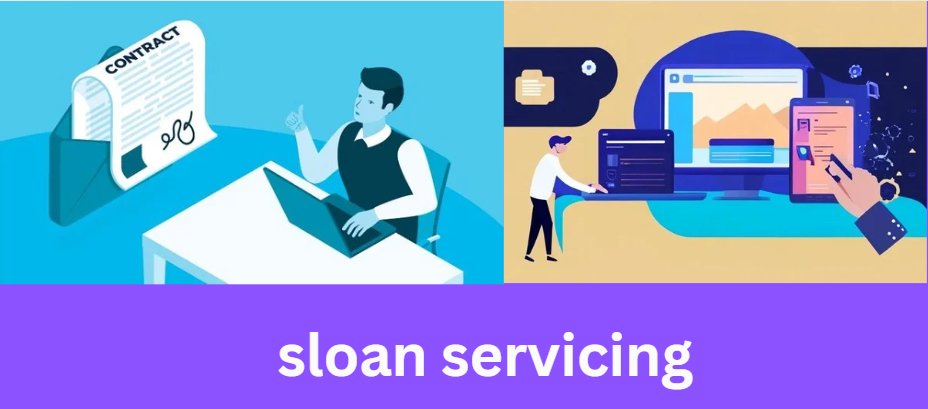Contents
- 1 Introduction
- 2 What is Sloan Servicing?
- 3 How Does Sloan Servicing Work?
- 4 The Legal Concerns Surrounding Sloan Servicing
- 5 What to Do If Sloan Servicing Is on Your Credit Report
- 6 Best Practices for Managing Loans with Sloan Servicing
- 7 The Impact of Sloan Servicing on Your Credit Score
- 8 Frequently Asked Questions (FAQs)
- 8.1 1. Is it legal for Sloan Servicing to keep debt on my credit report for more than seven years?
- 8.2 2. How can I dispute incorrect information from Sloan Servicing on my credit report?
- 8.3 3. What should I do if Sloan Servicing is harassing me for debt collection?
- 8.4 4. How do I know if Sloan Servicing is accurately reporting my loan payments?
- 8.5 5. Can Sloan Servicing sell my debt to another company?
- 9 Conclusion
Introduction
In the complex world of loan servicing, understanding how your debts are managed is crucial to maintaining financial health. One particular entity that has gained attention in the USA is Sloan Servicing. Whether you’re looking to clean up your credit report or struggling with debt repayment, Sloan Servicing is a name you may encounter. But what exactly is Sloan Servicing? How do they operate, and what are your rights as a consumer?
This article provides a deep dive into Sloan Servicing, examining their operations, legalities, and implications for credit reporting. We’ll also provide actionable advice on managing your credit score, analyzing how Sloan Servicing fits into the broader financial landscape, and answering key FAQs to help you navigate this complex area.
What is Sloan Servicing?
Sloan Servicing is a company involved in the management of loan accounts. Typically, loan servicing companies handle the administrative tasks related to loans, such as processing payments, maintaining payment records, and handling defaults. Loan servicers may not own the loan but are hired by the lender to manage these day-to-day responsibilities. Sloan Servicing, as with many servicing companies, deals with issues related to credit reporting, debt collection, and repayment plans.
They are often contacted by borrowers who have questions about their loan balance, payment history, or the status of their account. However, Sloan Servicing has also raised eyebrows due to certain practices related to credit reporting and debt collection, which many consumers question for legality and ethics.
How Does Sloan Servicing Work?
1. Payment Processing
Sloan Servicing, like most loan servicing companies, is primarily responsible for processing loan payments from borrowers. They maintain detailed records of the payments received and the balance remaining on the loan. Loan servicing companies act as a middleman between the borrower and the lender, ensuring that payments are made on time and are applied correctly.
2. Managing Defaults
When a borrower fails to make payments on time, Sloan Servicing steps in to manage the default process. This could involve negotiating repayment plans, handling collections, or, in some cases, initiating legal proceedings against the borrower.
3. Credit Reporting
Credit reporting is one of the more controversial aspects of Sloan Servicing. Like other loan servicers, Sloan reports loan activity to credit bureaus, which can affect a borrower’s credit score. However, issues arise when old or incorrect information stays on a borrower’s credit report for longer than legally allowed, creating a negative impact on credit scores.
The Legal Concerns Surrounding Sloan Servicing
1. Credit Reporting Regulations
One of the key legal concerns related to Sloan Servicing involves credit reporting. Under the Fair Credit Reporting Act (FCRA), it is illegal for negative items, such as unpaid debts, to remain on your credit report for more than seven years. If Sloan Servicing, or any company, fails to remove outdated information from your credit report, they may be violating federal law.
In many cases, consumers have reported that Sloan Servicing has failed to update or correct credit reports, leading to extended periods of damaged credit. This raises significant legal and ethical questions about their business practices.
2. Debt Collection Practices
Another area of concern involves how Sloan Servicing handles debt collection. Under the Fair Debt Collection Practices Act (FDCPA), loan servicers must follow strict guidelines when attempting to collect debts. This includes not harassing consumers, providing accurate information, and not misrepresenting the amount owed. There have been claims that Sloan Servicing may engage in aggressive or unethical collection practices, although no formal rulings have been widely reported.
What to Do If Sloan Servicing Is on Your Credit Report
If Sloan Servicing has negatively impacted your credit report, it’s essential to understand your rights. Here’s a step-by-step guide to addressing the issue:
1. Review Your Credit Report
Start by obtaining a copy of your credit report from the three major credit bureaus: Experian, Equifax, and TransUnion. Review the entries related to Sloan Servicing carefully. Look for any outdated information, duplicate accounts, or inaccuracies that could be dragging down your credit score.
2. Dispute Incorrect Information
If you find incorrect information related to Sloan Servicing, you have the right to dispute it with the credit bureau. You can file a dispute online or by mail. The credit bureau has 30 days to investigate and respond to your dispute.
3. Contact Sloan Servicing
If the issue is not resolved through the credit bureau, contact Sloan Servicing directly. Request that they correct or remove the incorrect information. Be sure to keep all communication in writing and maintain records of your efforts.
4. File a Complaint with the CFPB
If Sloan Servicing does not respond to your requests or refuses to correct the issue, you can file a complaint with the Consumer Financial Protection Bureau (CFPB). The CFPB investigates complaints related to credit reporting, debt collection, and other financial matters.
Best Practices for Managing Loans with Sloan Servicing
1. Stay on Top of Your Payments
One of the most critical aspects of managing a loan with Sloan Servicing is making sure that all payments are made on time. Late payments can result in negative credit reporting and additional fees.
2. Keep Detailed Records
Always keep a record of your payment history, especially if you’ve had any issues with Sloan Servicing. This can help protect you in the event of a dispute.
3. Request a Payment History Report
If you’re uncertain about the accuracy of Sloan Servicing’s records, request a payment history report. This document will detail every payment you’ve made, allowing you to verify its accuracy.
The Impact of Sloan Servicing on Your Credit Score
Your credit score is a critical aspect of your financial health, affecting everything from loan approvals to interest rates. If Sloan Servicing mishandles your loan or incorrectly reports your payment history, it can have a significant negative impact on your score.
1. Payment History
Your payment history is the single most important factor in determining your credit score. Sloan Servicing is responsible for reporting your payment history to the credit bureaus. Late payments or defaults can result in a dramatic drop in your credit score.
2. Account Age
The age of your credit accounts also plays a role in determining your credit score. Sloan Servicing may manage long-standing loans, which can positively impact your score as older accounts generally contribute to a higher score.
3. Debt-to-Income Ratio
Your debt-to-income ratio, or the amount of debt you owe compared to your income, is another factor that impacts your credit score. If you have large outstanding balances with Sloan Servicing, this could negatively affect your score, particularly if they report late payments or defaults.
Frequently Asked Questions (FAQs)
1. Is it legal for Sloan Servicing to keep debt on my credit report for more than seven years?
No. Under the Fair Credit Reporting Act (FCRA), negative information, such as unpaid debts, must be removed from your credit report after seven years. If Sloan Servicing is keeping information on your report longer than this, it may be a violation of the law.
2. How can I dispute incorrect information from Sloan Servicing on my credit report?
You can dispute incorrect information directly with the credit bureau or Sloan Servicing. Begin by reviewing your credit report, identifying inaccuracies, and then filing a formal dispute.
3. What should I do if Sloan Servicing is harassing me for debt collection?
If you believe that Sloan Servicing is violating your rights under the Fair Debt Collection Practices Act (FDCPA), you can file a complaint with the CFPB. You also have the right to request that Sloan Servicing stop contacting you about the debt.
4. How do I know if Sloan Servicing is accurately reporting my loan payments?
You can request a payment history report from Sloan Servicing or regularly check your credit report to ensure that they are reporting your payments accurately. If you find any discrepancies, you should dispute them as soon as possible.
5. Can Sloan Servicing sell my debt to another company?
Yes, loan servicers often sell debt to other companies. However, the new company is required to inform you of the sale and provide accurate information about the debt.
Conclusion
Sloan Servicing plays a critical role in the financial lives of many borrowers, but it’s important to understand their responsibilities and your rights as a consumer. From managing payments to ensuring accurate credit reporting, dealing with a loan servicing company like Sloan requires vigilance. If you believe that Sloan Servicing is mishandling your loan or credit report, there are legal avenues to address the issue, including disputing inaccurate information and filing complaints with regulatory agencies.
By staying informed and proactive, you can protect your financial health and ensure that Sloan Servicing is operating within the bounds of the law.



